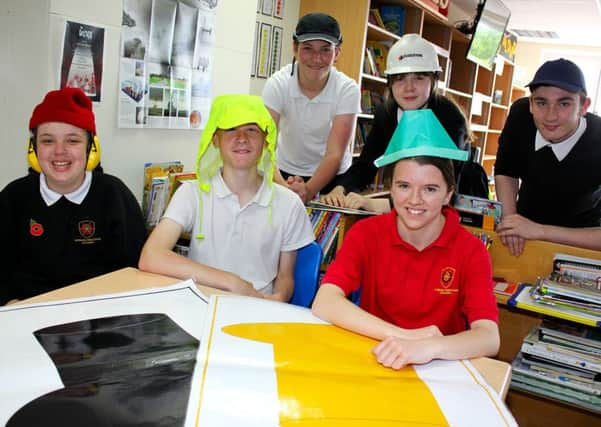Sunderland school's pupils get their thinking hats on


Staff and students at accredited ‘Thinking School’, Barbara Priestman Academy, in Sunderland, have been working with experts from Exeter University on research assessing the impact of teaching students to be independent thinkers.
The school is part of the Ascent Academies’ Trust and recently staged a research-meet for teachers and teaching assistants interested in its pioneering work.
Advertisement
Hide AdAdvertisement
Hide AdExecutive headteacher Carolyn Barker said: “Our aim is to be reflective practitioners constantly monitoring, assessing and researching the impact and benefits our strategies have on learning.”
Staff have spent the past four years involved in school-based research and the academy is aiming for advanced thinking schools status. It was one of the first schools to achieve the top level National Federation Education Research Mark.
A programme of continuous professional development sees a stream of teachers studying masters in autism, teaching and learning as well as degrees in subjects as far reaching as fine art and the students, who have special needs, contribute greatly to the whole process.
Ms Barker said: “We are committed to researching and assessing the best possible practices and supporting staff in their development.
Advertisement
Hide AdAdvertisement
Hide Ad“High expectations and performance are the norms built into the culture and ethos of the school.”
She said students also recognised the power of research and had been involved in the development of thinking tools.
Different coloured hats represent different thought processes, such as factual, intuitive, creative and negative.
“The children are in control of how we use the tools and they become extremely adept at using them,” she said.
Advertisement
Hide AdAdvertisement
Hide Ad“It is lovely to see as it is a way of them managing their thinking and using it in a way that is structured, which really benefits the students, helping them to be more communicative, improves their listening skills and also promotes non-judgemental discussions.”
Children also use dramatic inquiry, whereby they adopt a role to discuss issues from a different point of view.
“This is so insightful and some of the thinking is profound as it can bring out deep responses from the pupils.
“There are some powerful learning opportunities which help our students become independent, thoughtful citizens, who are less dependent on the system and more likely to be their own people.”
Anyone interested in getting involved with the work at the trust should contact Judith Stephenson at [email protected]